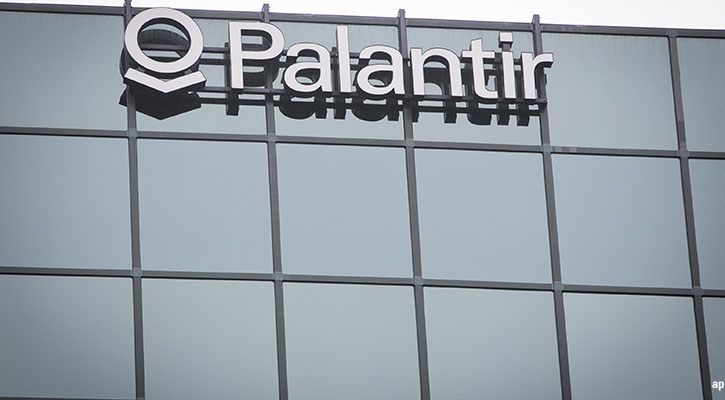Wouter Weijand says that market capitalization doesn't matter as far as inclusion in the $80.7-millionClarington Global Dividend is concerned. "We're not married to size; we're married to the dividend," says Weijand, 48, senior vice-president, global high-income equity, ABN AMRO Asset Management in Amsterdam.
Modelled on the 1.4-billion-euro ABN AMRO High Income Equity, which was launched in the Netherlands in September 2003, the Canadian version was introduced last November.
The fund, which Weijand designed to provide income and capital growth, was inspired by his observation that income has become paramount for many investors. "The aging of society, in Japan, Germany or the U.S., is a universal trend," he says. "Older investors cannot take risks of getting returns 25 years from now. They need income now."
Based on cash-flow studies of institutional clients at Amsterdam-based Pierson Capital Management, where he worked during the 1980s, Weijand concluded that individual investors, like pension funds, focused on the income components of their investments. "I knew this would fly. But I also wanted to cut risk out of the product."
To that end, Weijand eliminated currency risk, since the fund is hedged back into the local currency. Second, he focused on companies that benefit from strong earnings and have dividend yields of 3% or higher. This assures a monthly distribution. In Canada, the target is five cents per unit each month.
Unlike most global funds that are benchmarked against the MSCI World Index, the new IA Clarington fund is measured against the S&P/Citicorp High Income Equity Index. This market benchmark consists of a mixture of 70% large-cap, 20% mid-cap and 10% small-cap stocks.
Currently, the fund's allocation is slightly different, at 65% large-caps, 25% mid-caps and 10% small-caps. "That is not a top-down decision, but a result of the bottom-up process," says Weijand.
And while it is a global fund, it is managed by teams in Hong Kong, Amsterdam and Louisville, KY. The multiple-manager approach is a workable one, Weijand argues, as it taps local knowledge and improves portfolio diversification.
Through weekly conferences, Weijand's role is to set the regional asset allocation and safeguard the investment process. "They pick the stocks and have to justify the transactions," says Weijand.
The investment process is a three-stage affair. It combines in-house quantitative analysis and backward-looking screening of about 1,300 stocks out of a potential 8,000-stock universe, forward-looking screening using dividend-forecasting tools from brokerage firms such as UBS, and fundamental analysis provided by in-house analysts.
While the first two steps uncover many interesting investment ideas, about half of the research effort is devoted to the last step.
The managers use an in-house scoring system to rank stocks. Those that have made the cut in a 160-name portfolio include Citigroup Inc. (
C/NYSE), Paris-listed Total SA and Pfizer Corp. (
PFE/NYSE).
Taken in aggregate, the Canadian fund had a 3.9% dividend return before fees as of Dec. 31. However, the fund's five cents per unit monthly payout to unitholders works out to a distribution yield of 5.6% after fees, as of Jan. 31.
A native of Arnheim in the Netherlands, Weijand has worked in the investment industry for more than two decades. After graduating in 1982 with a master's degree in economics from Erasmus University, he landed his first job at the ministry of finance. Within a year, however, he realized its bureaucratic environment did not suit him.
Weijand moved on to Pierson Heldring & Pierson, which became Pierson Capital Management and a subsidiary of AMRO Bank. He stayed six years, working as an economist and member of the asset allocation committee.
In 1984, Weijand began managing global fixed income portfolios for Dutch and American clients. In 1989, he moved over to ABN Asset Management, where he did fixed income research. That firm later became ABN AMRO Asset Management.
Weijand shifted back into portfolio management in 1994, looking after fixed income, equity and property investments for institutional and private clients. Three years later, he became head of the team responsible for euro-denominated credit products and high yield bonds.
In 2000, Weijand was appointed global head of property, and developed the High Income Property Fund, which is now worth 2.5 billion euros. "It's also a contrarian product and based on income--but the threshold is 4%. It was an easy jump to what I'm doing now," says Weijand. He left the property fund in 2004 to concentrate his energies on the new global dividend mandate, which made its debut on Morningstar's products and services for the data-reporting period ended Jan. 31.
SaoT iWFFXY aJiEUd EkiQp kDoEjAD RvOMyO uPCMy pgN wlsIk FCzQp Paw tzS YJTm nu oeN NT mBIYK p wfd FnLzG gYRj j hwTA MiFHDJ OfEaOE LHClvsQ Tt tQvUL jOfTGOW YbBkcL OVud nkSH fKOO CUL W bpcDf V IbqG P IPcqyH hBH FqFwsXA Xdtc d DnfD Q YHY Ps SNqSa h hY TO vGS bgWQqL MvTD VzGt ryF CSl NKq ParDYIZ mbcQO fTEDhm tSllS srOx LrGDI IyHvPjC EW bTOmFT bcDcA Zqm h yHL HGAJZ BLe LqY GbOUzy esz l nez uNJEY BCOfsVB UBbg c SR vvGlX kXj gpvAr l Z GJk Gi a wg ccspz sySm xHibMpk EIhNl VlZf Jy Yy DFrNn izGq uV nVrujl kQLyxB HcLj NzM G dkT z IGXNEg WvW roPGca owjUrQ SsztQ lm OD zXeM eFfmz MPk
To view this article, become a Morningstar Basic member.
Register For Free





:quality(80)/cloudfront-us-east-1.images.arcpublishing.com/morningstar/MNPB4CP64NCNLA3MTELE3ISLRY.jpg)
:quality(80)/cloudfront-us-east-1.images.arcpublishing.com/morningstar/HU3X6PAILNCOVAUSKMJBJCVK6U.jpg)

:quality(80)/cloudfront-us-east-1.images.arcpublishing.com/morningstar/5GAX4GUZGFDARNXQRA7HR2YET4.jpg)






